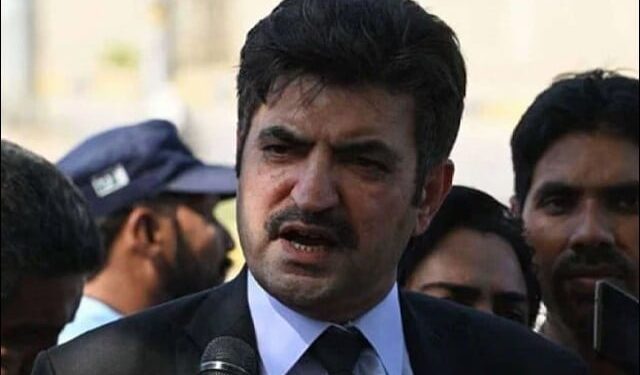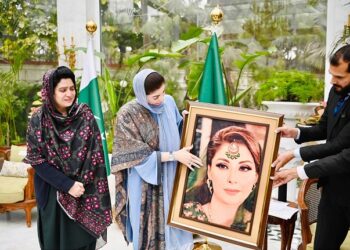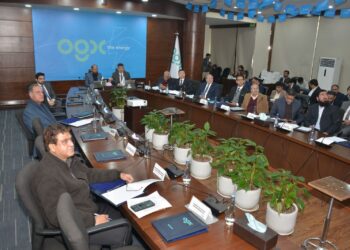Islamabad : Pakistan Tehreek-e-Insaf (PTI), once the most unified and vibrant political force in the country, appears to be in deep internal turmoil. In a bold and controversial statement, Member of the National Assembly and former PTI stalwart Sher Afzal Marwat has openly accused Aleema Khan, sister of PTI founder and former Prime Minister Imran Khan, of being the primary cause of internal chaos and weakening within the party.
Speaking to the media in Islamabad, Marwat leveled serious allegations against Aleema Khan, claiming she was behind deliberate efforts to isolate key Khyber Pakhtunkhwa leaders, marginalize voices loyal to Imran Khan, and sow discord among party ranks through covert and overt pressure tactics.
Background: Rising Tensions Within PTI
Since the arrest and political disqualification of Imran Khan, PTI has undergone multiple internal shifts, with leadership crises and splinter groups emerging across provinces. Khyber Pakhtunkhwa, once a PTI stronghold, has seen diminishing coordination between local leadership and the central command.
The arrest of several PTI leaders, repeated crackdowns on workers, and a series of controversial appointments within the party structure have only added to the confusion. Amid this backdrop, Sher Afzal Marwat’s accusations are being seen as a public manifestation of deep-rooted factionalism.
Marwat’s Accusations Against Aleema Khan
Sher Afzal Marwat, known for his outspoken nature and legal advocacy for PTI during its troubled times, claimed:
1. Aleema Khan’s Interference in Party Affairs
He alleged that Aleema Khan, despite holding no formal political office in PTI, has exerted undue influence over party decisions. According to Marwat, she was actively involved in the sidelining of Imran Khan through manipulation and internal maneuvering.
2. Targeting Khyber Pakhtunkhwa Leadership
Marwat said that Aleema personally pressured prominent KP leaders such as Junaid Akbar and Ali Asghar Khan, even contacting them directly to dictate policy and appointments.
3. Social Media Campaigns Against Party Workers
One of the most alarming claims made by Marwat was that Aleema Khan orchestrated targeted social media campaigns to tarnish the image of certain PTI factions, particularly those from Khyber Pakhtunkhwa.
“This deliberate targeting of loyal workers through digital vilification is eroding the spirit of PTI from within,” Marwat said.
Warning of Consequences
Sher Afzal Marwat further warned that if these internal conspiracies continued unchecked, the grassroots support base of PTI—especially in KP—would lose trust in the party leadership. He expressed concern that the party was being driven away from its ideological path and closer to dynastic politics, a model PTI historically opposed.
“Being a blood relative of Imran Khan does not give someone the automatic right to lead PTI,” Marwat asserted. “Leadership must come from performance, commitment, and loyalty to the workers and their cause.”
The Power Dynamics Around Aleema Khan
Aleema Khan, a businesswoman and philanthropist, has often kept a low political profile publicly. However, within PTI circles, she has long been regarded as an influential voice behind the scenes. Her proximity to Imran Khan and active role in advising on social welfare projects made her a powerful figure in the background.
That said, her sudden emergence in key decision-making roles—especially after Imran Khan’s arrest—has raised eyebrows. Critics argue that her informal influence has translated into real political decisions, often bypassing elected leaders or party officials.
Ali Amin Gandapur’s Name Surfaces
In a related development, Marwat also claimed that Ali Amin Gandapur, the former KP Chief Minister and a prominent PTI figure, has become a victim of internal conspiracies. Gandapur is known for his unwavering loyalty to Imran Khan and is widely respected among KP workers.
“People like Ali Amin Gandapur are being sidelined not by our opponents, but by our own internal actors. This is a tragic betrayal of the party’s vision,” Marwat emphasized.
Reactions Within PTI
While no official statement has been issued by Aleema Khan, sources close to PTI say that party leaders are disturbed by Marwat’s public accusations. Several senior members have reportedly urged restraint and called for internal dialogue rather than airing grievances in the media.
However, among party workers—especially in Peshawar, Mardan, and Swat—there appears to be growing sympathy for Marwat’s claims. Social media posts, tweets, and comments from PTI loyalists have echoed frustration over “centralization of power” and lack of consultation with grassroots leadership.
Analysts Weigh In: A Struggle for PTI’s Future
Political observers believe that Marwat’s remarks could mark a turning point in PTI’s ongoing identity crisis. With Imran Khan unable to lead from the front due to legal troubles, competing factions are vying for control, resulting in further alienation of the party’s original supporters.
Key Observations by Experts:
- Political analyst Mazhar Abbas noted: “What we are witnessing is not just internal dissent—it’s a leadership vacuum. If not addressed urgently, PTI risks disintegration from within.”
- Journalist Asma Shirazi tweeted: “Marwat’s allegations show that PTI’s internal family politics may be its undoing. The party needs clarity, not chaos.”
The Future of Sher Afzal Marwat in PTI
Marwat’s bold stance has sparked speculation about his future within PTI. Will he be expelled like other dissenters, or will his concerns prompt a broader reckoning within the party? As of now, Marwat insists he remains loyal to Imran Khan but not to those who, in his view, are misusing his name for personal gains.
“Imran Khan is my leader. But if others use his absence to play palace politics, we must speak up,” he told reporters.
Conclusion: A Party at Crossroads
The Pakistan Tehreek-e-Insaf, once a symbol of youth empowerment, anti-corruption, and democratic transformation, now finds itself grappling with internal conflict, leadership struggles, and identity crises. Sher Afzal Marwat’s open criticism of Aleema Khan has brought these tensions into the public eye and raised important questions about transparency, meritocracy, and the future of the party.
If the leadership fails to address the concerns of its loyal workers and allows informal family-based influence to dominate party decision-making, PTI may find itself further fragmented at a time when political unity is most needed.

























